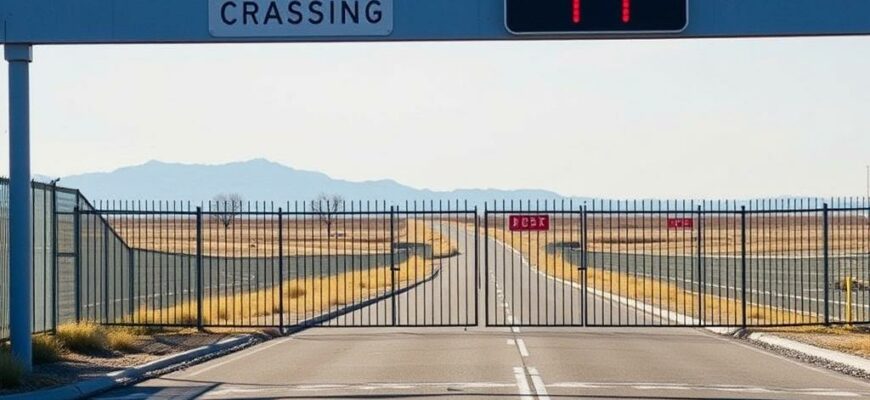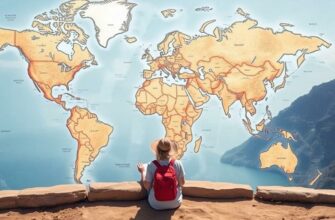Traveling independently across borders can be one of the most exciting and rewarding experiences a traveler can have. There’s a unique sense of freedom and adventure when you’re responsible solely for your journey, making decisions on the fly and immersing yourself fully in new cultures. However, border crossings often present a series of challenges that independent travelers might not expect, from paperwork headaches to navigating unfamiliar regulations. Understanding these obstacles and preparing ahead can turn potentially stressful moments into smooth transitions that enrich your travel experience.
Understanding Border Crossings: The Basics
Border crossings are more than just physical checkpoints between countries. They involve legal, cultural, and logistical considerations that can vary wildly depending on where you travel. For independent travelers, this means getting familiar with visa requirements, customs regulations, and the political climate of the countries you plan to enter or leave. Without a guided tour or group assistance, these variables require you to be proactive and well-informed.
Each country has its own set of rules regarding visa issuance, lengths of stay, and prohibited items when crossing borders. For example, while some countries have visa-free agreements facilitating easy entry, others require detailed applications and sometimes lengthy waiting periods. Independent travelers need to research their destination’s policies thoroughly before setting out. This includes understanding what documentation you need, such as passports, visas, or travel insurance.
Paperwork and Documentation: Preparing for the Unexpected
One of the most common challenges faced by those who cross borders independently is the management of documentation. The importance of carrying the correct paperwork cannot be overstated, as failing to provide what’s required can result in denied entry or extended delays. Beyond visas and passports, some countries ask for additional documents like proof of onward travel, vaccination certificates, or even financial statements showing you can support yourself during your stay.
It’s also crucial to note that rules can change with little notice. Border authorities might update their requirements or introduce new restrictions due to political situations or health concerns, as witnessed during the COVID-19 pandemic. Staying up-to-date by following official government websites or travel forums can help you avoid unpleasant surprises.
Dealing with Customs and Immigration Officers
Passing customs and immigration is a critical part of every border crossing, and it often involves interaction with government officials. For independent travelers, this can be intimidating—especially if you aren’t fluent in the local language. Being polite, calm, and cooperative helps, but knowing what to expect can also ease anxiety.
Customs officers might ask detailed questions about your travel itinerary, reasons for visiting, or items you’re bringing with you. Having your documentation easily accessible and organized makes this process smoother. Remember that independent travelers sometimes face additional scrutiny, as officials may be wary of unfamiliar solo travelers or those crossing at less-frequented points.
Common Challenges Faced by Independent Travelers at Borders
Traveling independently is thrilling, but border crossings add a layer of complexity that can test your patience and problem-solving skills. Some of the common challenges include:
- Language Barriers: Misunderstandings can lead to delays or misinterpretation of documents.
- Varying Entry Requirements: Different countries enforce different rules, meaning a traveler must keep track of multiple sets of regulations.
- Unpredictable Wait Times: Long queues and processing delays can disrupt travel schedules.
- Security Checks: Enhanced security measures, including body scanning and baggage inspections, can feel intrusive.
- Currency Exchange and Payments: Some border crossings require fees or currency payments, adding complexity for travelers unfamiliar with local money.
Being prepared to handle these challenges not only expedites the process but also protects your peace of mind. For example, learning a few basic phrases in the local language or having a translation app can bridge communication gaps instantly.
Visa Issues and Workarounds
Visas often cause independent travelers the most stress. Obtaining the right visa can involve a maze of paperwork and requirements. Some visas need to be applied for weeks in advance, while others might be issued on arrival with limited validity. Missing the correct visa can mean denial at the border or fines.
In some regions, travelers use transit visas or special permits to simplify movement between countries. For instance, Southeast Asia’s ASEAN countries sometimes provide visa-free travel or multiple-entry travelers permits. However, understanding which documents apply to your nationality and travel plans is essential. Many countries also impose restrictions on how long you can stay and how often you can enter, so meticulous trip planning is warranted.
The Role of Technology in Smoothing Border Crossings
Technology can be a traveler’s best friend when crossing borders independently. Mobile apps and online platforms provide real-time updates on entry requirements, wait times, and border status. For example, apps from immigration authorities can help travelers pre-register or submit required data electronically, speeding up processing times.
Digital copies of important documents stored securely on your phone or cloud storage mean you always have access, even if the physical copies get lost or stolen. Additionally, electronic wallets or travel cards can negate the need to carry large sums of cash, which adds a layer of security.
Tips and Tools to Prepare for Smooth Border Crossings
Preparation is key for any independent traveler. Here are some strategic steps and tools that can make your border crossing experience easier:
| Tip | Explanation | Tool/Resource |
|---|---|---|
| Research Entry Requirements | Check official government websites for the latest visa and vaccination policies. | Embassy websites, travel advisory apps like TripIt |
| Organize Documentation | Keep passports, visas, insurance, and tickets in one easily accessible folder or app. | Physical travel wallet, digital document management apps |
| Learn Basic Local Phrases | Know key phrases like “passport,” “visa,” and “exit” in the local language. | Language apps such as Duolingo, Google Translate |
| Use Real-Time Border Updates | Check current border wait times or closures before departing. | Official border authority websites, social media alerts |
| Carry Small Local Currency | Some border fees or purchases may only accept cash. | Currency exchange apps, prepaid travel cards |
| Stay Calm and Patient | A calm demeanor helps in stressful interactions with border officers. | Mindfulness apps, travel support groups |
Different Border Crossing Experiences Around the World
While the fundamental challenges of border crossings are universal, the experience varies greatly by region and country.
The European Union (Schengen Area)
For independent travelers in Europe, the Schengen Area offers a largely seamless crossing experience. Once inside the zone, you can travel across most member countries without border checks. However, this convenience demands strict adherence to visa conditions both on arrival and departure. Outside Schengen, crossing borders can be more involved.
Southeast Asia
Southeast Asia is famous for relaxed visa-on-arrival policies and frequent checkpoint crossings, especially overland between countries like Thailand, Laos, and Cambodia. This region attracts many independent travelers, backpackers, and digital nomads who appreciate the accessibility but should be wary of informal fees and unofficial checkpoints.
North America
The US-Canada and US-Mexico borders are known for stringent security measures. Independent travelers crossing these borders must be prepared for intense questioning and thorough inspections, especially post-9/11. Understanding customs declarations and carrying all necessary paperwork facilitates a smoother crossing.
Unexpected Challenges: When Things Don’t Go as Planned
Even the best preparation cannot prevent every issue. Independent travelers sometimes face unexpected setbacks such as lost documents, political unrest, or sudden border closures. In such cases, having emergency contacts like your country’s embassy, travel insurance with assistance services, and a flexible itinerary can lessen the impact.
For example, a traveler crossing into a new country might find their visa suspended due to a change in policy or might be asked for proof of vaccination on short notice. In some regions, border delays caused by natural disasters or protests can strand travelers for days.
Handling Emergencies
— Contact your embassy or consulate immediately for assistance.
— Notify your travel insurance provider for possible emergency support.
— Stay informed via local news or official government channels.
— Use local contacts or traveler networks for advice.
— Always carry multiple forms of identification and document backups.
Strategies for Independent Travelers to Make Border Crossings Easier

Beyond practical planners and technology, building resilience and adaptability helps independent travelers to thrive during border crossing challenges. Approaching every border as part of the adventure rather than an obstacle creates a positive mindset.
Here are a few strategies:
- Schedule Flexibility: Build extra time into your travel plans to accommodate delays.
- Keep Essentials Handy: Always have your most important documents and valuables within reach.
- Learn About Local Customs: Respect local rules and cultural norms to avoid unnecessary complications.
- Network with Other Travelers: Join forums or local travel meetups for insider tips and support.
- Stay Health-Conscious: Carry needed vaccines, health certificates, and practice good hygiene.
A Word on Safety and Security
While border crossings are official checkpoints, certain regions may have higher instances of scams or petty crime targeting travelers. Independent travelers should be cautious and vigilant—always avoid unofficial agents, double-check fees, and safeguard personal belongings.
Conclusion
Border crossings for independent travelers are complex moments filled with a mix of excitement, anticipation, and sometimes stress. By understanding the layers of paperwork, customs procedures, language barriers, and regional differences, travelers can prepare themselves to face these challenges confidently. Technology, thorough research, and a flexible mindset are invaluable tools that transform border crossings from potential obstacles into integral parts of the journey. With preparation and patience, crossing borders independently becomes not just manageable, but an enriching experience that adds depth to your global adventures.









